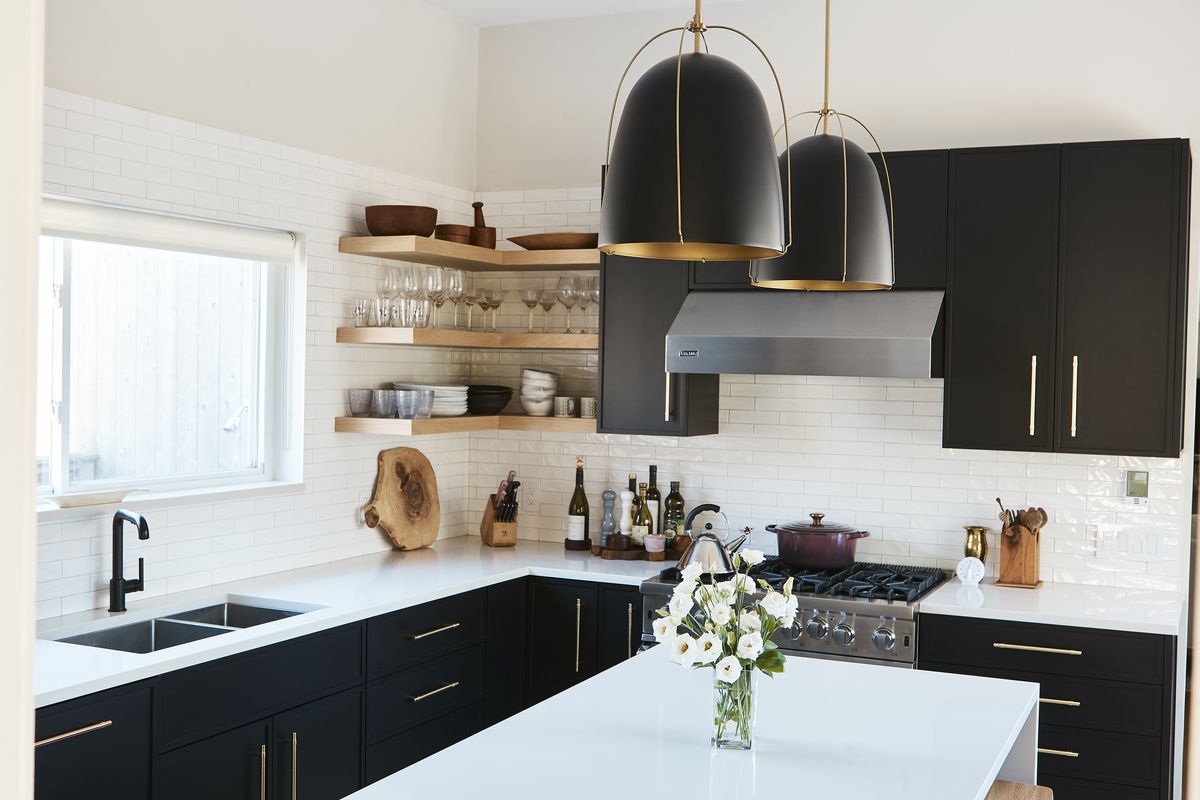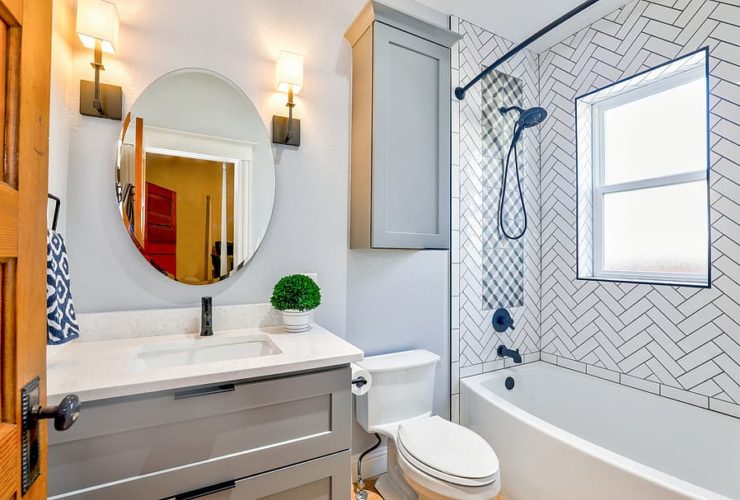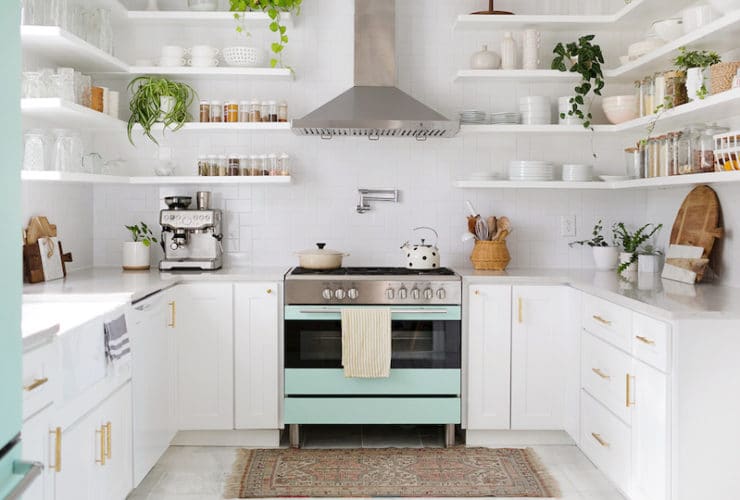Not only that, but your expectations and requirements of the kitchen also keep evolving as time goes by. You might need to upgrade your appliances, change the kitchen layout, or just want a new look. This is where kitchen remodeling comes in.
Whether you’re just thinking of a new kitchen or have already decided to update it, this kitchen remodel guide will answer all your questions and help guide you towards the kitchen of your dreams.
Using This Kitchen Remodel Guide to Plan Your Remodel
A kitchen remodel has a lot of moving parts. Before you move ahead with the process, you need to start planning the kitchen remodel. To do this, you need to understand the different components of a kitchen remodel and the remodeling process. But you don’t have anything to worry about. In this kitchen remodel guide, we aim to help you with the process of understanding your own needs better so that your kitchen suits your needs the best.
1. Think About Your Needs
Before moving ahead with the remodeling process, you need to ask yourself some questions. One of these questions is: ‘Why do I need to remodel my kitchen?’
Every homeowner has a different reason for remodeling their kitchen. The process depends upon your personal requirements. Some homeowners feel like their kitchen is too small for their needs, sometimes their kitchen is literally falling apart, and some just want a new look. It’s up to you to figure out your needs and requirement and note them down before the remodeling process starts.
You must evaluate and understand what you want out of this kitchen remodel to move ahead.
2. Making the Call
There are many ways to approach a remodel. However, the most common point of contention is to choose between DIY vs. Professional. Each method has its own set of pros and cons.
DIY remodel does save you some money, but you are compromising on a lot of things. To begin with, your kitchen is a highly technical space. It might look simple on the surface, but below that, it is quite intricate.
Even the most experienced DIY-ers hand over kitchen remodeling projects to professional contractors.
TIP: Leave plumbing and electrical tasks for the experts. If you want to embark on DIY projects, you can do so by painting cabinets or installing hardware.
3. Choosing a Theme
One of the most critical steps of the planning phase is to figure out the design of your remodeled kitchen. This particular step often proves to be quite time-consuming.
There are many kitchen remodeling ideas for you to choose from. You can choose from different themes such as traditional, contemporary, minimalist, transitional, and many more. In the end, it comes down to your personal taste, theme compatibility, design requirements, and several other factors.
Once you’ve narrowed it down to your chosen theme, you can move on to the next step.
4. Choosing a Contractor
Choosing the right contractor for your kitchen remodel can make or break your remodeling project. Hence, you mustn’t rush this process.
Here are some steps to follow to help you choose a contractor:
- Ask your family and friends for recommendations.
- Thoroughly examine the credentials of a contractor.
- Approach multiple contractors before deciding.
- Think beyond money and the lowest bid
- Understand the availability and financial stability of the contractor
- Ask about labor and staff credentials
- Ask for a written contract.
These are some of the few basic requirements that need to be met before you start working with a contractor. Above all, you have to ensure that the contractor you choose to work with has all licenses in order and follows proper protocol.
An essential element that goes into choosing a contractor for your kitchen remodel is whether or not they can work with your budget. However, how do you decide on a budget? It’s not as simple as it may look.
Budgeting For a Kitchen Remodel
Money makes the world go round, and your kitchen remodel is not an exception. An important part of the remodeling process is to figure out your budget. Selecting the budget is more than the cost of a kitchen remodel. Here are some factors that will help you understand how to budget for a kitchen remodel.
1. Understand the Costs
The cost to remodel a kitchen differs from household to household. However, you can get a rough estimate based on certain averages.
For instance, a minor kitchen remodel can cost anywhere between $5,000 to $15,000, whereas a significant kitchen remodel can go anywhere beyond $30,000. Similarly, it can cost anywhere between $5,000 to $25,000 to remodel a small kitchen (70 sq.ft).
2. Recognize the Most Expensive Aspect of a Remodel
There are man factors that determine the cost of your kitchen remodeling project. But do you know what is the most expensive part of a kitchen remodel? Cabinets. Although it may come as a surprise to many, cabinets are the most costly part of a kitchen remodeling project.
Installing brand new cabinetry can cost upwards of $15,000 in a large kitchen. This is closely followed by new appliances hovering at $8,000 and followed by kitchen countertops costing somewhere around $6,000.
The labor behind plumbing, electrical, and installation work also makes for a considerable part of your final budget and needs to be monitored closely.
3. Prepare for Emergencies
Remodeling your kitchen is an intricate process. More often than not, you’ll encounter one problem or another. Unfortunately, these problems come to light only after the remodeling process has begun.
These problems usually range from extensive plumbing damage or major electrical rework. Sometimes, there is also an unintentional delay (Hello, COVID). The point is, you can never predict if something goes wrong, but you can always be prepared.
A good practice is to set aside 15% to 20% of your total budget for emergencies. It will give you the mental peace of having the necessary funds, but it will also save you a lot of time and effort during the remodeling process. You do not want to go on a last-minute scramble to gather some money while your kitchen is being ripped apart.
Once you’ve figured out the right budget for your kitchen remodel, you might want to start looking for some remodeling ideas.
Kitchen Remodeling Ideas
4. Open up the Kitchen Space
Most homes do not have a sprawling kitchen, even if they do the wrong design choices can really cramp up the kitchen space. If you want to make your kitchen look more open and airy, consider implementing certain tricks.
Opt for light colors (white, pastels, or cream), keep it as open as possible with windows, and an open floor plan to ‘expand’ the kitchen space available and don’t go overboard with cabinetry.
5. Choose the Right Backsplash
The kitchen backsplash is more or less the focal point in any kitchen. Not only is it functional, but it is also decorative. It is vital to choose the right backsplash as it sets the tone for your kitchen.
Common kitchen backsplash choices include marble, granite, steel, tile, glass, and even reclaimed wood.
6. Let There be Light
You could have the most beautifully designed kitchen, but without proper lighting, it will look dull and uninspiring. While remodeling your kitchen, you should consider natural light, along with artificial lighting.
7. Try Open Shelving
One of the key features in any kitchen is how beautiful it looks. Wall-to-wall cabinetry doesn’t always look as good as it is supposed to. You should consider opting for open shelving by replacing specific sections of upper cabinetry (or getting rid of it altogether).
Not only does it make for a viable storage option, but it also lends a decorative element to your kitchen and adds a certain character to the kitchen aesthetics.
Choose the Right Countertop Material
Your kitchen countertop plays a crucial role in the day to day functionality of the kitchen. It has to bear the brunt of heavy utensils, oil splatter, stains, and daily kitchen activity, but it also forms an integral part of the kitchen design.
Choosing the right countertop material depends on many factors, such as sturdiness, maintenance, design, etc. The most common kitchen countertop materials include granite, quartz, marble, stone, and concrete.
1. Don’t Forget About Storage
Kitchen storage is an important element that you should take into consideration while remodeling your kitchen. With the right amount of storage and storage options, you are set for a long time. From cabinets, pantry, and other smart storage solutions — you have many options to choose from.
In Conclusion
Remodeling your kitchen is a huge undertaking. However, when you are equipped with the right information and tips, it becomes much more manageable. This kitchen remodel guide aims to ensure that you can learn about the fundamentals of a kitchen renovation and bring you one step close to the kitchen of your dreams.




